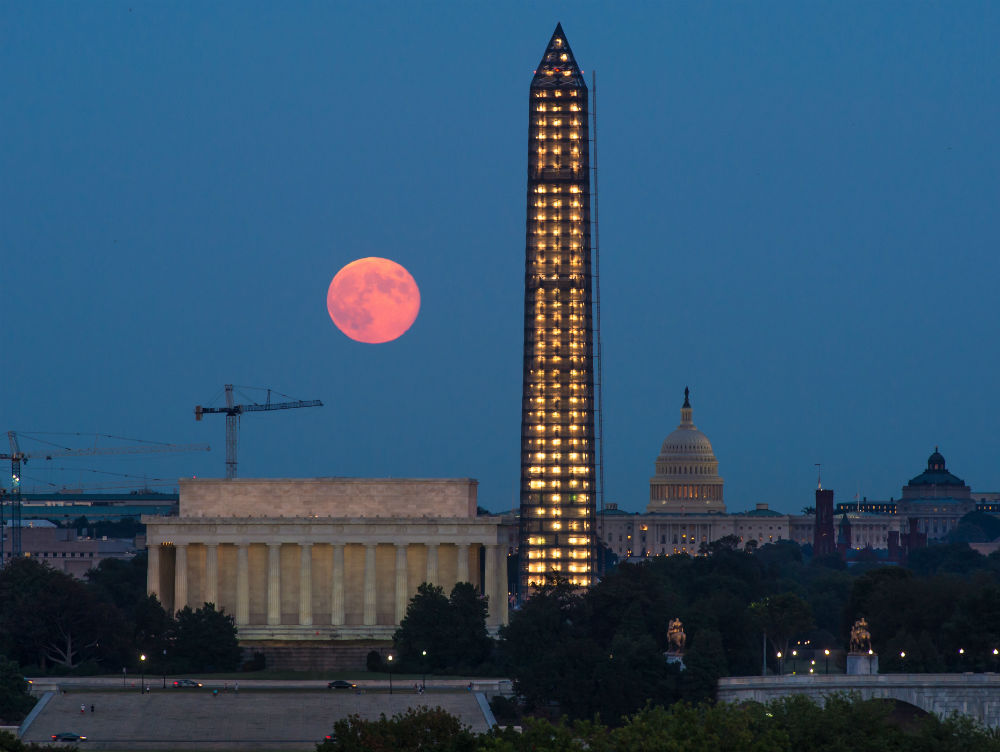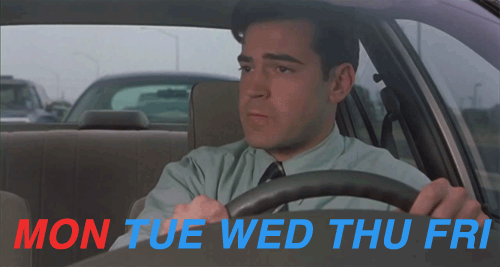
This post is part of the General Conference Odyssey.
There are times when it is hard to get much out of a session of General Conference.[ref]Fair warning: this post is going to get a little darker before it gets lighter, but it does get lighter. Please stick with me to the end.[/ref]
On the one hand, I don’t think this will surprise anyone as a general statement of fact. On the other hand, it might seem like an odd thing to focus on for a post that’s part of the General Conference Odyssey: a decade+ project to read every General Conference talk since 1974.
For me, just so we’re speaking honestly, the recurring problems I have with general conference talks are when they come across as triumphalist. Triumphalism, via Google, is “excessive exultation over one’s success or achievements.” One symptom, for me, are stories about members of other faiths—and especially leaders of other faiths—who convert to Mormonism. I confess that I don’t like these stories. For one thing, they offend my sensibilities as a data analyst. Sure, you can find a Catholic priest who converted to Mormonism, but here’s the thing: Catholics share stories of Mormons who convert to Catholicism. Or, not to put too fine a point on it, Catholics tend to share stories of prominent Protestant scholars who convert to Catholicism while Protestants tend to share stories of prominent Catholics who convert to Protestantism. Mormons, to be frank, often don’t even rate a mention in the ongoing Catholic vs. Protestant dialogue.
Just randomly, as one example, here’s a story a triumphalist Catholic friend of mine shared today on Facebook: The photo that lost radio’s ‘Bible Answer Man’ thousands of listeners. The story isn’t even about a conversion from Protestantism to Catholicism, but to Eastern Orthodoxy which just goes to show you the lengths to which people will try to use these kinds of stories to make their own tribe (er… religion) look cooler. These stories don’t mean anything.
I also find the way scripture is handled to be frustrating sometimes. In this conference, for example, we had Isaiah 29:18 cited, which goes like this:
And in that day shall the deaf hear the words of the book, and the eyes of the blind shall see out of obscurity, and out of darkness.
And then this interpretation is given:
Isaiah didn’t understand way back in his day of his own wisdom the theory of braille that makes it possible for the blind to read the words of the book.
Whatever Isaiah was thinking at the time, I really don’t think that it had anything to do with braille which, while we’re at it, can’t really be called a “theory” any more than Morse code is a theory. I was also greatly frustrated when, for example, a member of the stake high presidency described existentialism in a talk as (going from memory): “the philosophy that you can do whatever you want because nothing matters.” I can kind-of/sort-of see where he was coming from (there’s a connection between existentialism and nihilism, of sorts) but this is the kind of statement that would make anyone who had studied philosophy cringe. Or, to give one more example before we turn the corner and head in a new direction, all the ordinary interpretations of Revelation 3:16 are basically wrong. That’s the one that goes “So then because thou art lukewarm, and neither cold nor hot, I will spue thee out of my mouth,” and everyone thinks it means that it’s better to be really bad than to be mediocre. Which sounds kind-of/sort-of plausible when you’re thinking about someone like Alma the Younger or Saul-before-Paul, but—as a general rule—would just be crazy. I’m pretty sure if the options are “really industrious serial killer” or “excessively lazy person with homicidal tendencies” that God—and everyone else—would prefer you stay home on your sofa rather than get off your lazy butt and chop someone to bits with an axe.
So what does the scripture actually mean? Here’s a really informative passage from the excellent book Misreading Scripture Through Western Eyes:
In the summer of 2002, however, standing there among the then-unexcavated ruins of Laodicea, another interpretation of that famous passage presented itself. Several miles northwest of Laodicea, perched atop a small mountain, is a city called Hierapolis. At the base of Hierapolis is an extraordinary geological formation produced by the natural hot springs that surface around the city. Even today, the city is known for its steaming mineral baths.
Over the centuries, the subterranean springs have created a snow-white calcium deposit known in Turkish as Pamukkale, or “cotton castle,” that cascades down the slopes like ice. From our vantage point in Laodicea, Hierapolis gleamed white like a freshly powdered ski slope.
About the same distance from Laodicea in the opposite direction is Colossae. The city was not yet excavated in 2002, so we couldn’t see it; but it is almost certain that in the first century, you could have seen Colossae from Laodicea. Paul’s colleague Epaphras worked in Colossae, as well as in Laodicea and Hierapolis (Col 4:13Open in Logos Bible Software (if available)). It was a less notable city than Laodicea, but it had one thing Laodicea didn’t: a cold, freshwater spring. In fact, it was water—or the lack thereof—that set Laodicea apart.
Unlike its neighbors, Laodicea had no springs at all. It had to import its water via aqueduct from elsewhere: hot mineral water from Hierapolis or fresh cold water from Colossae. The trouble was, by the time the water from either city made it to Laodicea, it had lost the qualities that made it remarkable. The hot water was no longer hot; the cold water was no longer cold.
The Laodiceans were left with all the lukewarm water they could drink. Surely they wished their water was one or the other—either hot or cold. There isn’t much use for lukewarm water. I suspect that the meaning of the Lord’s warning was clear to the Laodiceans. He wished his people were hot (like the salubrious waters of Hierapolis) or cold (like the refreshing waters of Colossae). Instead, their discipleship was unremarkable.
OK, so we’ve taken our little tangent and I’ve shared with you the reality that sometimes I really don’t enjoy reading these talks. When I read irrelevant stories about Baptist ministers who converted to Mormonism or read improbabe and shallow interpretations of scripture, I get very, very frustrated. I don’t really blame myself for that frustration, because leaders are fallible, they do make mistakes, and sometimes those mistakes can be genuinely frustrating.
But here’s the thing: I keep reading anyway. I keep going. I just muscle my way through the discomfort and the alienation and—without fail—I always find a reward that more than makes up for my efforts.
A few years ago we did an exercise in an old ward where we all used our cell phone to answer survey questions anonymously in real time. The questions were things like, “Who read your scriptures this morning?”
It was one of the most powerful lessons I’ve ever had in the Church. Partially because it spoke to me as a data guy. I hadn’t read the scriptures, but I read them most mornings, and so I was really tempted to fudge my answer. But that’s not how this works. Because the survey was unexpected it was basically random (close enough for government work) and so in aggregate—with lots of people answering—the folks who usually read but didn’t that morning and the folks who rarely read but randomly had that morning would equal out and we’d get a pretty accurate assessment of daily scripture study. I think the number was like 60% or something. I don’t remember. The point was that putting cold, hard numbers to the questions made me rethink my level of commitment. That feeling of kind of squirming in my seat and wanting to say I’d read my scriptures that morning (even though it was anonymous) and not being able to honestly say it stuck with me. I didn’t want to be in that situation again.
I can tell you now that I have read my scriptures every single day for the last 50 days. When I read today, it will be 51. I have said a prayer in the morning every single day for the last 51 days. I have said a prayer in the evening every day for the last 155 days. I’m not trying to impress anyone. I don’t think those numbers are impressive. That’s not the point. The point is this: because I’m tracking them I can’t fib to myself anymore about whether I do these things every day. I know when I do. I know when I do not.
And I will tell you one more thing: there are days when I really, really don’t want to read the scriptures. It’s late. I’m exhausted. I have to get up early. I don’t want to do it. And—because I’m tracking—I force myself to do it anyway.
There’s nothing heroic or profound about this. It’s utterly, completely, totally banal. If I forget to pray in the morning before I go to work, I go find a small room (they’re called “phone booths”) during the day and I shut the door, and I say my prayer. No matter what time it is, no matter how late it is, I kneel down every night and I pray. These prayers are sometimes pathetic, but I actually use a timer to force myself to spend a minimum amount of time on them anyway.[ref]Three minutes for morning prayers and six minutes for evening prayers, if you’re curious. I never said I wasn’t weird.[/ref]
And then one day, not long ago, I discovered something incredible. I had come to love praying. There is a tenderness in how I view my daily prayers that has never been there before. It grew so slowly and so subtly that I didn’t even notice it was happening. I just happened to think about praying one day, and I realized I was looking forward to it. I have started to feel like praying is talking to God. It’s still hard for me sometimes, but overall it stopped being a chore and became something I genuinely look forward to most days.
And that’s when it hit me: repetition changes the nature of a thing. You can say a prayer, and I can say a prayer, but if you’re saying a prayer for the 10,000th day in a row and I’m saying one for the 2nd day in a row, then we’re not quite doing the same thing. Quantity, as they say, is a kind of quality. And the nature of what we’re doing changes when we do it day-in, day-out for weeks and weeks or months and months. And, I would guess, for years and years. Ask me again in 2027, and hopefully I’ll be able to tell you if my suspicion was right.[ref]I don’t think there’s anything mystical about never missing a single day, by the way. I’m just breaking myself of the habit of finding excuses to readily to skip a day.[/ref]
This is an utterly Mormon realization, because it does what Joseph Smith always did: weds the mundane and the sacred. The mundane is forcing yourself to do something every single day because you said you were going to do it.[ref]And don’t take this the wrong way: most days I really like praying anyway. It’s only hard sometimes.[/ref] And somehow, when you’re not even paying attention, habit becomes holiness.
Not that I’m holy! No. But, by doing something again and again, I found a holy space that I didn’t expect to find. It’s a holy space that’s hidden in time rather than space. You don’t get to it by going to a certain location. You get to it by doing something a certain number of times. I know what it’s like to pray for ½ a year (almost) without missing a day. What’s it like to pray without missing a day for a decade? Some of you probably know that already. I want to find out.[ref]I hope this doesn’t need to be stated but just in case: It’s not a competition. At all.[/ref]
And that’s why I’m not going to quote any particular passage from this session of the April 1976 General Conference. It’s not a cop out. I just reached a point—around the fourth talk—where gritting my teeth and soldiering on had ceased and my heart was soft and the words were starting to resonate. I felt like the talks got better, but who’s to say? Maybe they did. Maybe they didn’t. All I know is they started to enter my heart, and instead of noticing things to criticize I noticed things to ponder.
There’s a demon on my shoulder that always criticizes everything I read, listen to, or watch. I have a love-hate relationship with this demon. I hope that it will make me a better writer, because with a little effort I can turn it onto my own creations, and—even when I apply them to other people’s stuff—I can learn lessons about how to write better. I hope, at least; that’s the theory.
But this little demon is basically impossible to turn off, and one result is that I enjoy a lot less entertainment than most people I know. The number of books or shows or movies I can watch without a running list of mistakes (real or imagined) is infinitesimal. Another result is that sometimes I have to break through walls of instinctual rejection before I can get to the kernel of goodness in a General Conference talk.
But here’s the thing: there are a million different kinds of demons out there. We all have our own. Some are big, some are small. Some affect us publicly, some attack us in private. There are countless barriers—some high, some low—that give us excuses not to access the spiritual nourishment our souls need. It’s up to us all to figure out a way over, through, or around those barriers.
The Church of Jesus Christ of Latter-day Saints was not tailor made for me. It’s never going to fit me perfectly. My interests, inclinations, aptitudes, and so forth are never, ever going to be the guiding star for the General Authorities. Their job is to talk to the general audience. My job, as a member of that audience, is to listen actively. Not to wait for their messages to deliver gift-wrapped enlightenment, but to greedily get out my rhetorical pick-axe and start digging to unearth truths I need.
Not long ago, I (not so gently?) poked fun in a group email at an academic for what I called his “nuance fetish”. Intellectuals, from my perspective, spend way too much time splicing and dicing and almost always miss the forest for the trees. When you talk to academics (most of the time) it’s like generalizations are not ever allowed. It annoys me.
On the other hand, there are plenty of people who think I am needlessly specific in the way I communicate. To them, I am the one who would rather split hairs than simply accept the broad sentiment they are going for.[ref]I know these people well. I’m married to one of them.[/ref]
Of course I think that I strike the perfect balance between intellectual sophistication and subtlety and hard-nosed pragmatism, but the chance that I’ve actually found the Celestial optimum level of specificity in communication is essentially zero. What’s more, there is almost certainly no such thing.
We all have our own languages. Not just French and German and English, but also subtle or vibrant, technical jargon or folksy idiom. God speaks all our languages, but His servants can’t speak more than a few, and can’t ever speak more than one at a time. You may as well get used to subtitles, because you’re going to need them.
So here’s the point I’ve been driving at over this long, long post: I don’t apologize for disliking the triumphalism of the 1970s era General Conference talks. I don’t apologize for seeing some of the shoddy proof-texting for what it is. But I also refuse to let these complaints—no matter how legitimate—become stumbling blocks.
We often talk about members leaving because they were offended, and what we have in mind is that Sister So-and-So said something to Brother What’s-His-Face and then it got back to Brother and Sister Those-Other-Folks and they were deeply offended and vowed never to return. And yeah, I’m sure that has happened. But that’s a tiny fraction of what it means to be offended.
I’m offended, in a broader sense, every time someone misinterprets Revelation 3:16 or insists on reading Genesis literally. I can choose to let these offenses fester. I can take on a superior attitude or assume a stance of alienation and opposition to the Church and the people within it. Or I can buckle down and realize that my way is not the one, true, right way.
If I do that—if I insist on coming back to the General Conference talks (or listening to ordinary Sacrament talks!)—again and again, then I will find those holy spaces that exist in time but not space.
Earth’s crammed with heaven,
And every common bush afire with God,
But only he who sees takes off his shoes;
The rest sit round it and pluck blackberries[ref]Elizabeth Barrett Browning, quoted in Value of the Holy Scriptures[/ref]
This is truth. There are sacred burning fires in all the General Conference talks and in humble Sabbath testimonies. There are temples in time we find when we say our prayers for the 1st or 10th or 10,000th time, and I want to visit them all. There are sacred groves waiting for us to find when we make the sacrifice to read our scriptures—even on our busiest day, even only a verse—but we have to undertake the journey to find them. They are there, waiting for us. All we need to do is keep on the path of discipleship, and we will see vistas unravel before our eyes and discover universes of enlightenment sandwiched between the slices of everyday life.
I am not blind; I see the shortcomings of my leaders, my neighbors, myself.
I pray that I will not be blind; that I will see God moving behind them anyway.
—
Check out the other posts from the General Conference Odyssey this week and join our Facebook group to follow along!



 Well, this should be obvious, but it still stings. I’ve experienced an
Well, this should be obvious, but it still stings. I’ve experienced an 



 Imprisonment for drug crimes as opposed to non-prison sentences such as jail stays and terms of probation was not associated with a reduction in the likelihood of recidivism. That “null” finding held for all felony drug offenders as well as for different racial, ethnic, gender, and age groups and for inmates with different punishment histories. The sole and notable exception was for whites. For white drug offenders, imprisonment—as compared to being sentenced to community sanctions such as jail, intensive probation, or probation— appeared to increase recidivism. The results of this study thus do not support the argument that prison appreciably reduces or increases recidivism for most drug offenders, but they do suggest the possibility that it may do so for white drug offenders.
Imprisonment for drug crimes as opposed to non-prison sentences such as jail stays and terms of probation was not associated with a reduction in the likelihood of recidivism. That “null” finding held for all felony drug offenders as well as for different racial, ethnic, gender, and age groups and for inmates with different punishment histories. The sole and notable exception was for whites. For white drug offenders, imprisonment—as compared to being sentenced to community sanctions such as jail, intensive probation, or probation— appeared to increase recidivism. The results of this study thus do not support the argument that prison appreciably reduces or increases recidivism for most drug offenders, but they do suggest the possibility that it may do so for white drug offenders.
 In many situations, the better approach to mitigating political ignorance is not to give up on empowering ordinary people, but to do so in a different way. Instead of putting our faith in political participation, we can instead give people more opportunities to
In many situations, the better approach to mitigating political ignorance is not to give up on empowering ordinary people, but to do so in a different way. Instead of putting our faith in political participation, we can instead give people more opportunities to 